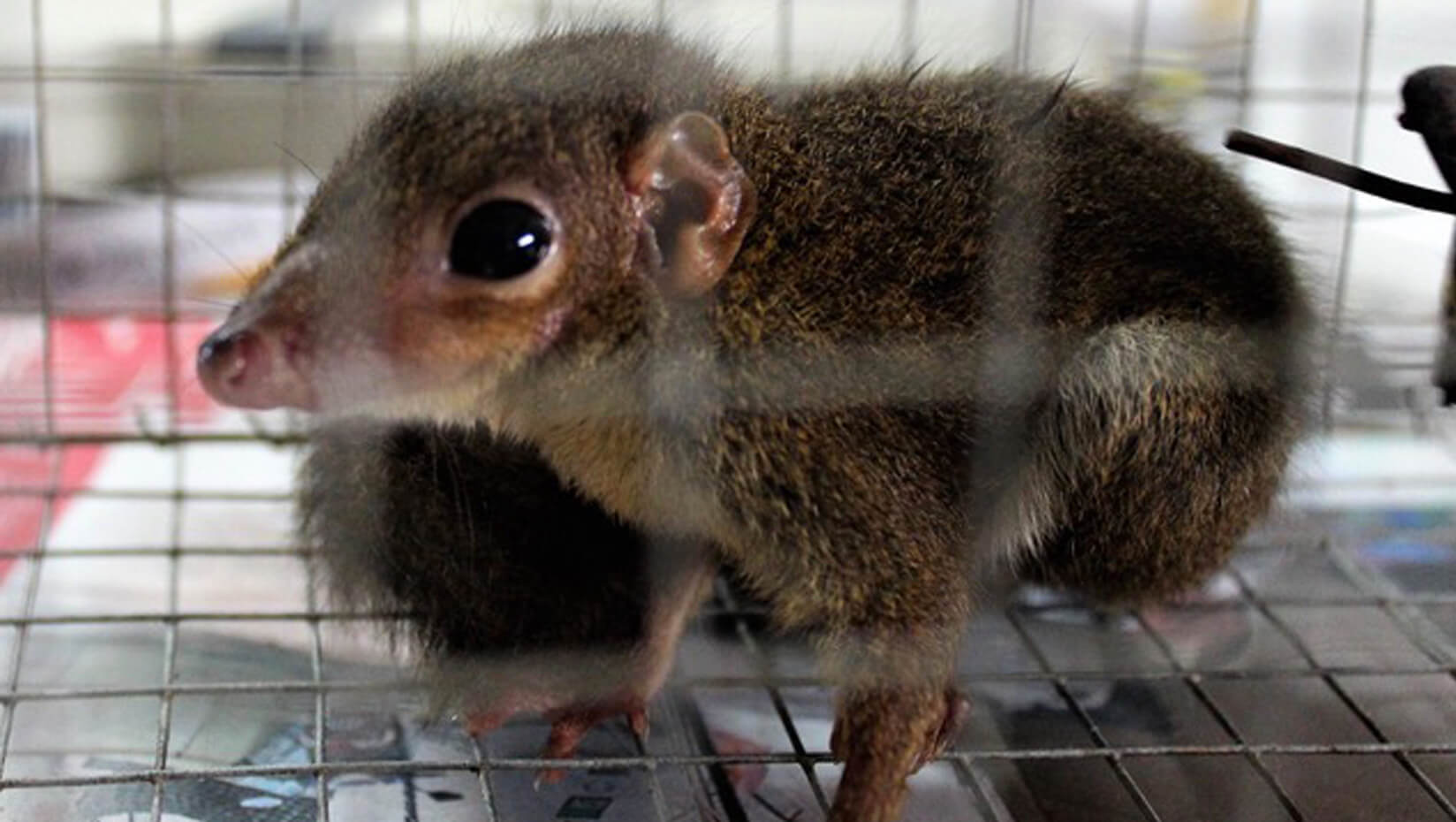
Bornean treeshrews can take the heat
As human activity shapes Earth’s climate, animals must increasingly adapt to new environmental conditions. The thermoneutral zone — the ambient temperature range in which mammals can maintain their body temperature without expending extra energy — is a key factor in estimating a species’ ability to survive in a warming world.
Reptiles and other ectotherms that rely on the environment to regulate their body temperature are believed to be more vulnerable to global warming in the tropics than in temperate climates. However, less is known about small tropical mammals, especially those active during the day.
To better understand if small tropical mammals also have increased vulnerability as their environments heat up, Danielle Levesque, University of Maine assistant professor of mammology and mammal health, and collaborators from the Universiti Malaysia Sarawak studied Bornean treeshrews. They measured the oxygen consumption of the wild-caught lesser treeshrews (Tupaia minor) over a range of temperatures, calculating the animals’ resting metabolic rate and thermoneutral zone.
The team found that, like other treeshrew species, the animals exhibited more flexibility in body temperature regulation than other small mammals. This contradicts current assumptions that the upper limit of the thermoneutral zone between mammal species has little variation. The findings highlight the importance of further research on the energetics of mammals in the equatorial tropics.
The team’s findings will be published in the paper “Small tropical mammals can take the heat-high upper limits of the thermoneutrality in a Bornean treeshrew” in May in the journal Physiological and Biochemical Zoology.
The study’s team included undergraduate students who were funded by two National Science Foundation Research Experience for Undergraduates and a Research Coordination Network grants awarded to the University of Arkansas. The research was supported by a grant from the Malaysian Ministry of Higher Education and a fellowship from the Universiti Malaysia Sarawak.
Contact: Margaret Nagle, 207.581.3745
